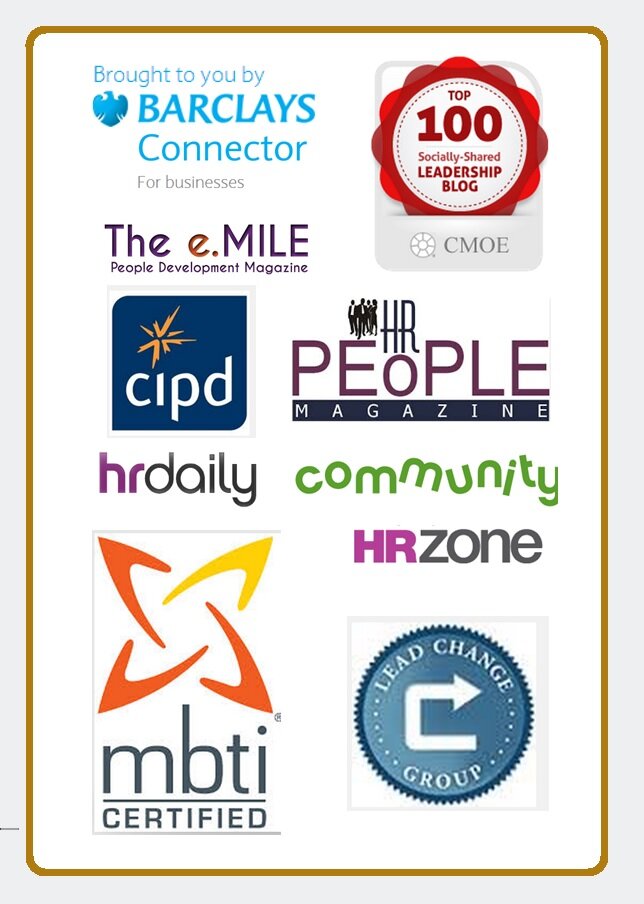 Business “Speak” Can Close Down Employees
Business “Speak” Can Close Down Employees
My son had a bit of an “Aha moment” at the weekend. He has been struggling with motivation, which isn’t uncommon for a 17 year old with his life before him and a multitude of opportunities to choose from.
We were sitting in the car and he was talking about going to University. Of course, being practical I trotted out my singular mantra “You only want to go and get £36k + in debt if you know what you want to do”. Little did I realise my flippant and black and white logic was actually paralysing him from moving forward.
His “Aha moment” was when he realised that my tunnel vision type logic was flawed. It sounds so simple, but he figured out he could still plan to go to University, go on visits, work towards it etc., but it didn’t mean by doing so, he had to close down his options to do something else, when decision time came. He figured out that actually if he worked hard and got good results it would hold him in good stead either for Uni, a good job, and to start up a business if he wanted to.
After he realised this freedom, there was a definite spring in his step which made me realise how inadvertently I had been shutting him down from keeping his options open. I was mystified why it was such a big “Aha moment” for him. It hit me like a big sledgehammer that I already assumed he was keeping his options open, but that the language and way I expressed my concerns made him think I expected him to make a decision now.
The incident with my son, made me think about some of the common expressions and practices we use at work from a business perspective and how instead of motivating excellence or great business outcomes, they actually leave employees strapped into a culture of “business speak”, and “norms” of behaviour, leaving them feeling as if their hands are tied, or even worse maintaining a trance-like approach to these practices. Of course, like the incident with my son, leaders often assume their people understand that they don’t literally mean what they say. However, in my experience, that’s not always the case.
Here are some of the most common and badly interpreted names and expressions for business practices which can close down thinking and help maintain the status quo. With some imagination, the way these practices are expressed can help keep minds and conversations open.
-
Holding a Performance Review/Appraisal
This much maligned business practice has got such a poor reputation, with connotations of a mechanical approach to giving feedback that any business leader who really wants to make a difference, must think again. Even if the practice is good, the mere naming it of a performance appraisal or review simply dulls the brain. Find an alternative way to express the one-to-one time a manager has with his team. Make the process a continuous dialogue, and have milestones which enhance the way managers interact with their team. Call them “Driving up performance” sessions” or “How you contribute” meetings”, or even just “One-to-one time”. Of course it doesn’t matter what you call the sessions if they are mechanical tick box exercises, but by naming these valuable times with employees something meaningful, it can help people see just how important they are.
-
Business Planning Cycle
This expression implies an especially tedious routine for people who simply hate planning. For people who enjoy planning, it implies a process related way of approaching the business, in a set formula which might bear no resemblance to the actual issues in hand. Replacing the traditional business planning cycle with some inspirational language can transform the whole approach to business planning. Make the coming year a journey, with a story attached to it. Make it interesting, amusing and exciting. Alternative ideas could be “Our Journey of Success For 2015”, or “Involving All for Success ….”, or even “Continually improving xxx during….” Story telling can excite and catch the imagination of your people.
-
Achieving Results
I would love a £1 for every time I’ve heard an employee tell me the biggest problem with an organisation is their focus on results and targets to the exclusion of other things that matter in a business. Of course, businesses have to achieve results, but at this time when ethical and values based leadership is becoming more essential, the goal posts have changed. While any good business leader will of course understand that good business is about a multitude of factors, they may be inadvertently stifling other successes because their language is all about “Achieving Results”. Instead of simply focusing on results, focus on “Achieving Brilliant Outcomes”, “Our meaningful Impacts”, or even “Delivering on our Customer Success Criteria”. Find ways to celebrate success which harnesses the conceptual and emotional sides to your customers and people.
It’s time to become aware of our propensity to close down innovation, creativity, inclusion and participation, and think again. Next time my son talks about his future, I would simply say “Just do your best, it will all become apparent, and keep your options open”.
Do you have any pet expressions you think close people down in the workplace? Or have you or your organisation found inspirational alternatives to standard business -speak?
This great article is from the our 6 months themed series based on the Centre for Creative Leaderships Report of 2013, in which they identified the 6 top challenges for leaders across the globe: Don't Miss Out! Sign up here to be notified of subsequent issues and posts

If you are a leader, you are continually developing and "Sharpening the Saw". If you lead and manage teams, then you must read about our Inspirational New Leadership Programme. Sign up now to find out more details when we launch in July 2014. There is no obligation to undertake the programme, if you sign up today, you will simply be sent more information about the programme. You can unsubscribe at any time! Click below to register for further information.

 David a very practical and pragmatic approach to HR issues. After 24 years of working strategically with demanding clients his focus is on profitability and high performance at all levels of the business while ensuring there are robust foundations in place to motivate and help people succeed. His website is www.InspiredWorking.com
David a very practical and pragmatic approach to HR issues. After 24 years of working strategically with demanding clients his focus is on profitability and high performance at all levels of the business while ensuring there are robust foundations in place to motivate and help people succeed. His website is www.InspiredWorking.com
